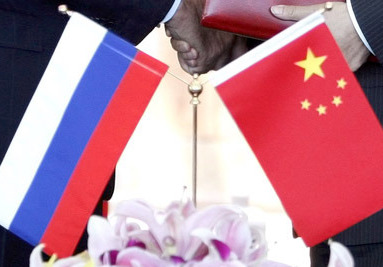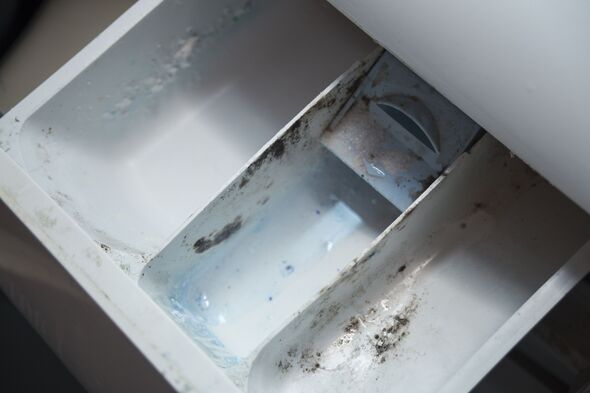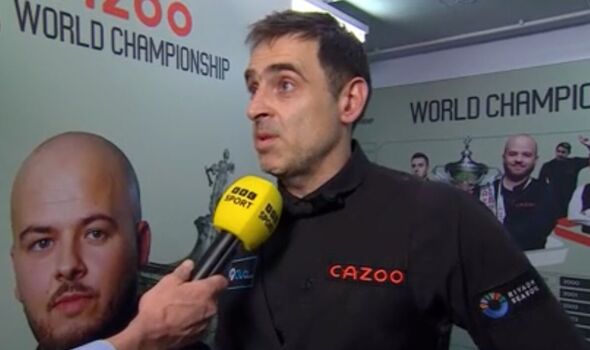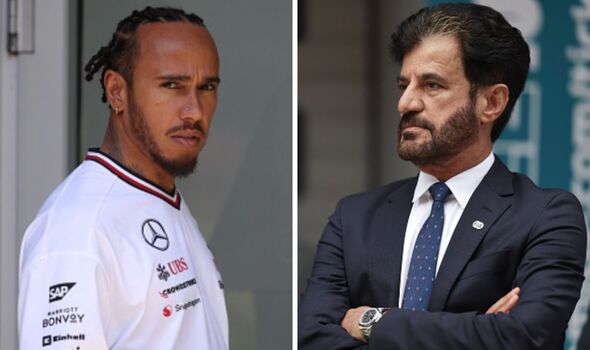
What the Post-American World Will Look Like
March 21, 2014
FDA hasn’t approved any new sunscreen ingredients in 15 years – Florida Times
March 22, 2014Mind on the matter
After playing for one of the most mentally tough GAA teams of recent times, former Armagh star Enda McNulty has helped a generation of Irish rugby players develop a winning mindset
He’s blessed. When Enda McNulty looks at his work with this generation of Irish rugby players, he can’t help thinking how fortunate he is and how they continue to impress him.
He takes you back to last Saturday night in Paris. Ireland have just won their second Six Nations championship in 29 years, the team and country are buoyant, yet the very first thing Paul O’Connell does in his speech at the post-match reception is apologise to the French team for being late.
O’Connell doesn’t just swiftly move onto something else either. Instead he talks for about four minutes about his regard for France’s contribution to the massive battle both teams had just fought and the reason for Ireland’s delay. He hoped the French understood that days like this didn’t happen very often in Irish rugby.
So the players had taken that bit longer in the dressing room, sitting around, taking a few selfies, sipping a couple of quiet beers, totally assimilating the moment, leaving a smiling, reflective McNulty watching on, thinking the Armagh football team he played with should have taken that bit more time to savour their victories together.
Then, as the meal and wine were served, O’Connell was courtesy personified to the catering staff, just as he was to the 100 or so wellwishers McNulty saw him greet when some players and backroom staff ventured through the streets of Dublin the day before the Italy game a fortnight ago. If a legend like the team captain can remain so humble and grounded, how then can a bit-player like the team’s sport psychologist performance coach not?
“I’m not saying that to sound nice or popular,” says McNulty, “but when you see other backroom staff like (video analyst) Mervyn Murphy working 12 hours a day right through the Six Nations, someone like Mike McCarthy and Rhys Ruddock not even make the final matchday squad, you get embarrassed by the attention. And when I see Paul O’Connell being so mannerly to the girl who was serving tea in the stadium after the game, then I’m certainly not going to claim credit for the culture or mindset this group has.”
It’s the Thursday after Paris when we catch up with McNulty in a coffee shop in Ranelagh, a white-top coffee and iPad on the table and some corporate client on the phone. He’s already long back to work.
His performance consultancy Motiv8 continue to expand the scale of their services to top partners like Microsoft and Intel and Lidl while there’s an executive summary review on the Six Nations which he has to deliver to Joe Schmidt, and by extension, the IRFU. This championship win is only the end of the beginning; it’s all about driving on now.
He compares that to when Armagh won the All-Ireland back in 2002. The Thursday after that particular triumph, he was in the backseat of a Volkswagen Golf being driven by Kieran McGeeney on their way to Diarmuid Marsden’s stag in Sligo when his phone rang. It was Dessie Ryan, his old mentor from Queen’s University who would regularly take him for one-to-one coaching and plot together how to defend the likes of Peter Canavan and Mike Frank Russell.
Firstly, Ryan congratulated McNulty on the victory he’d dreamed about all his life. Then he proceeded to dissect, almost devour, his performance. “To be honest, Enda, I thought you were far too loose in the first half. And in the second half, you weren’t sharp enough. You’re going to have to get much closer to your man. You need to significantly raise the bar for next year.”
Two weeks later, McNulty was already back in the gym, getting ready for 2003. In hindsight he probably should have given himself more time to recuperate and rejuvenate but he’s still hugely grateful for that call from Ryan. It jolted him and instilled in him the idea that there’s always more to do, always more to improve at.
It’s the same with this performance consultancy work. He thinks back to some of his first gigs and they make him cringe. One with the Wexford hurlers completely bombed. His first year with Leinster rugby, he’d barely give himself 20 out of a 100. The first group session had far too much theory.
“They wanted something practical, pragmatic, rugby-centric,” he says. “I’ve learned that the mental toughness we now work with in rugby and what I learned on the subject in a lecture hall bear no resemblance. It’s nearly like teaching Irish and teaching Chinese. Totally different.”
Isa Nacewa pulled him aside and told him he talked far too fast. Even now, with all the work he’s getting around the world, he finds his communication skills have to seriously upgrade.
“Last month we were in America with a global pharmaceutical company working with a team that had a guy from China, a lady from France, five Americans, two Brazilians, a Russian and a Mexican. You can’t talk about Armagh football there. It’s not going to cut it with the guy in China to use colloquialisms and tell him that he really needs to ‘raise the bar’. The company were actually very happy overall with our service but I learned from their feedback that for an audience like that, I need to slow down my delivery, use more US case studies and link everything back to core business metrics.”
It’s probably that willingness to stretch himself which is why he got such work in the first place. One of his first clients as a sports psychologist was to Longford Town, helping them to a couple of FAI Cups, and when one of their players suggested many of the same principles could apply in the workplace, McNulty soon found himself giving a seminar to Ulster Bank.
He’ll never forget that first corporate gig in Dunboyne Castle. And he’ll always remember his first dealing with a rugby player too, a 17-year-old player from Blackrock College called Luke Fitzgerald. A year later Fitzgerald was playing for the senior national team but again McNulty lays virtually all the credit to the player himself.
“When I asked Luke what his goals were I nearly dropped my cup of coffee. Other kids that age hum and haw. His answer was that he wanted to play for the British and Irish Lions, win over 100 caps for Ireland and over 200 with Leinster. That ambition and confidence was staggering while his game awareness of rugby at 17 was more than I knew about plays in Gaelic football at 30.”
As it would turn out, Fitzgerald would make the Lions squad in 2009, as would one Brian O’Driscoll. It’s easy to forget now but there was a time it was no sure thing O’Driscoll would make that team. The 2008 season had been disastrous for him with his body and confidence taking severe blows. O’Driscoll is since on record as crediting McNulty for his revival. Instead of obsessing over the aspects of his game that needed improving, O’Driscoll needed to catch himself and remember himself making good plays and having great games.
Recalling past glories wasn’t to live off them but a way to recreate future ones.
Soon McNulty was almost full-time in the Leinster rugby setup. Bernard Jackman raves about how he helped him improve his lineout throws. Another veteran like Malcolm O’Kelly benefited hugely from some of McNulty’s mistake management tips, something as simple yet as practical as saying a couple of trigger words to help him move onto the next play. It should not be underestimated just what a key role McNulty transforming a group that Neil Francis once dubbed the ladyboys of Europe into champions of Europe.
What changed? A group with four or five main cliques became one team. Where before players showed physiological weakness after a mistake, whether it was dropping the head or putting the hands on the head, they now looked up and moved on. Above all, the leaders started to really lead, having no tolerance for a player arriving late or dehydrated or not fully prepped on his brief. The way McNulty works with a setup usually consists of four strands: working with the coaches and backroom staff, working one-on-one with players, working with the full group and especially working with the leaders.
For McNulty if there was a leader of leaders at Leinster, it was Leo Cullen.
“Leo hasn’t got enough credit for being the most important cultural architect in Leinster. And talk about mental toughness. First of all, he always shows up at the showdown. He’s resilient; even if he’s not playing great or Leinster aren’t playing great, he’ll keep on trucking. We had a workshop on developing world-class leadership three years ago and he came up with the best definition I’ve ever heard. ‘Leadership is what you do every day.’
“You can rely on Leo Cullen every day. Even when I was starting out with Leinster he’d regularly go watch the academy teams train and play and encourage and demand that the standards there were as high as they needed to be in the senior setup. He’d sit down with the likes of Ian Madigan or Jack McGrath, take them for a coffee, go for breakfast with them, do a session with them in the gym, mentor them. The Brian O’Driscolls, Jamie Heaslips and Shane Jennings would do the same. They’ve created a culture where this is what is expected of a Leinster rugby player.”
Now he sees a similar ethos in the Irish squad. Even when they were losing games and injury-ravaged bodies last year in his initial few months in the job, McNulty was hugely enthused by the attitude of the players. “What struck me was their professionalism. ‘Yes, we’re pissed off, yes, this is lousy losing yet again, but you know what, suck it up and get on with it and on Monday morning it’s back to work.’ That was both young players and senior players; hugely resilient. And I couldn’t believe in the one-to-ones how those players continued to be so confident.”
The summer tour to Canada saw Fergal McFadden really bloom as a leader, even if he’s yet to command a starting spot. Peter O’Mahony, meanwhile, has astonished him.
“I’ve seen more of a remarkable development in him (O’Mahony) in the last 12 months than anyone I’ve come across in business or sport,” maintains McNulty. “His physical state, his communication, his humility, his workrate, his ability to consistently get into that peak performance state. I don’t think I’ve seen a more complete rugby performance than his display against Wales last month. I think he’s learned a lot from Paulie.”
And, of course, they’re all learning so much from Joe Schmidt, especially McNulty. He’s long been astonished by the tactical attention to detail in rugby but he’s found Schmidt another level again.
“Joe’s not merely word class when it comes to the detail and clarity around a game plan. He’s world leading in that regard. You get that in business and engineering too; they have to be incredibly precise in getting to the root cause of what the problem is, very quickly. In sport, we’re far too simplistic in our problem solving after a defeat. ‘We weren’t fit enough’ is the classic one in Gaelic Games. Whereas I’d say wait, is there an integrated reason why we lost? What exactly is the pattern from the statistical analysis over the last five years? Is it that we’re not good enough at kicking the ball dead? Generally we’re still not nearly good enough at making sense of the data, whereas Joe Schmidt and Less Kiss and all the Ireland coaches are brilliant at that.
“There’s a lot of talk in the media about how much Gaelic Games has tactically evolved over the last five or 10 years. I would say it has still been far too slow, that it is still virtually prehistoric. To look at the attention to detail the likes of Joe and his coaches go into, it’s a 100 years advance of what Armagh were doing in 2002. You take the lineout alone. You might have six or seven setups, with six or seven calls in each one. That’s 40 plays for lineouts alone whereas in Gaelic Games, we think someone’s a genius if they bring two men back into the hole to protect their full-back line.”
And yet, as good as he is and his team now are too, Schmidt sees so much where they can still get better.
They have to get better. Including McNulty. Schmidt has demanded he does.
“A lot of the stigma towards (sport psychology) has gone in rugby for awhile now but the IRFU still took a leap of faith in hiring me,” says McNulty. “So have I delivered for them? No. That will only be known post- World Cup. We’re on a journey. I’m very confident we can become the most mentally-tough rugby team in the world. Joe has been very clear to me in that challenge he’s presented. So that’s why I’m not just looking at other sports teams around the world, it’s why I’ve studied the Navy SEALs, spent time with the NYC fire department. All of our backroom staff know it’s not what’s been achieved in the last 12 months or 12 weeks, it’s what’s achieved in the next three years is where it’s at.”
As his old mentor Dessie Ryan might say but his Chinese client may not quite understand, he has to seriously keep raising the bar.
Which you suspect suits him just fine.
© Irish Examiner Ltd. All rights reserved
Home



